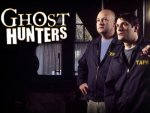True story - the body of work in 'science' is many and varied. It contains, among other things, theories which cannot be tested, never mind repeated, without jumping billions of years into the future (or the past). Much of what is accepted as canon is speculation expressed through mathematics. Quite how parallel universes are accepted, for example, when they are not provable in any way, when paranormal phenomenon like out of body expreience has a huge body of research and evidence to back it up... is what is called a /double standard/.
You'll never agree to this, despite it being true, so this is an utterly pointless discussion.
Parallel Universes are not accepted at all. They are still only the level of hypothesis. There is one way to interpret quantum mechanics that says all the possible quantum states do happen - in different universes. But there is no way to test this with our current knowledge, it doesn'T make any predictions indistinguishably by what alternate interpretations (like the official Kopenhagen interpretation about collapsing wave functions means).
It might be accepted in mainstream media as a cool thing to tell stories about - but on the science level, it's not something that is "accepted".
We cannot replicate the big bang. But the theories involving the big bang make predictions we can test with current observations. Not everything we can actually pull off in a lab, which we would find preferable - but we can still make predictions. Basically, one prediciton of these theories is the big bang - but there are other predictions, and we can gain confidence.
That also means, by the way ,we do not need, strictly speaking, have to test paranormals in the lab. We just need a meaningful prediction the presence of paranomal/psychic acitivities makes and observe if the prediction matches the observation. FOr example, if you say: "Because precognitive abilities exists, there must be people that never lose on horse races" and we can check horse racing statistics and see if we find someone that qualifies. But of course, there are two problems with this particular prediction:
- There are alternate explanations for someone that constantly wins horse races. Your hypothesis is no better than those.
- You can always claim "We just haven't found it yet". What you really want is something falsifiable. (Basically - if we measure X, then my theory cannot be true.) Something like: "A person that was born under the sign of Scorpia from parents born under the sign of Lion must be prophetic and on every New Years Eve, he will predict the next 3 horse races correctly". If that persons succeeds, we gain confidence in your hypothesis, and if we can do it enough, it might be the (first) precognition/astrology theory! If it fails, your hypothesis is debunked. You get back to the drawbing board and figure out where you went wrong. If your theory works well enough, you might look for other predictions it makes and see if those are also confirmed - every confirmation adding confidence, but every failure meaning that you need to reexamine the theory and evidence and see what went wrong.
Paranormal activity is not some new, fancy belief no one has ever thought of before. People believed in magic for a long time, and it was (and may still be) a very wide-spread belief.
All this belief however never produced a fire elemental powered air ship or wizard schools (outside of fantasy novels).
Most people didn't think about atoms and might not even have believed in them, but we found evidence of them and teaching about them is part of regular school courses, and of course, plenty of our electrical power we have comes from our ability to split atoms. Not many suspected or would have believed in tiny organism (or almost-organism) inside our bodies that could make us sick, and yet now we know they exist and use vaccines and antibiotics to make people healthier then ever.
If paranormal powers were "real", I think we would have already had a very good confidence they exist and were using them practically in large capacity.


